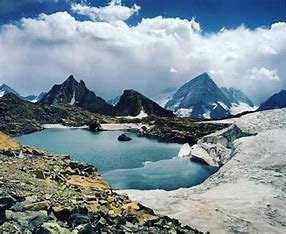A new assessment published in Science has unveiled a startling revelation: over 50% of the world’s largest lakes are losing water, driven by a combination of climate change and unsustainable human consumption. The study, led by Fangfang Yao, a climate fellow at the University of Virginia, offers a glimmer of hope amidst the concerning findings. By employing a novel method to track lake water storage trends and their causes, scientists can now provide valuable insights to water managers and communities on how to better protect these vital sources of water and preserve critical regional ecosystems.
This groundbreaking research represents the first comprehensive assessment of its kind, utilizing satellite data and models to analyze nearly 2,000 of the world’s largest lakes and reservoirs, which collectively account for 95% of the Earth’s lake water storage. The study demonstrates that freshwater lakes and reservoirs store a staggering 87% of the planet’s water, making them an invaluable resource for both human and ecological systems.
The results are concerning, with 53% of the studied lakes globally experiencing a decline in water storage. To put this into perspective, the scale of this loss is equivalent to the volume of 17 Lake Meads, the largest reservoir in the United States. The study also reveals previously unknown instances of lake desiccation, such as the drying of Lake Good-e-Zareh in Afghanistan and Lake Mar Chiquita in Argentina, highlighting the far-reaching impact of climate change and human water consumption.
Notably, the decline in water storage affects lakes across diverse regions, including both arid and humid areas. This indicates a more widespread drying trend than previously understood, affecting even traditionally wet locations such as tropical and Arctic lakes. Additionally, the study examines large reservoirs and reveals that nearly two-thirds of them have experienced significant water losses, predominantly due to sedimentation.
While the findings are undeniably concerning, they also shed light on potential solutions. The study underscores the urgent need to incorporate human consumption, climate change, and sedimentation impacts into sustainable water resource management. By addressing these factors, it is possible to mitigate the large-scale decline in lake water storage. The researchers point to the example of Lake Sevan in Armenia, where water storage has increased in the last two decades due to the enforcement of conservation laws on water withdrawal.
This groundbreaking assessment not only reveals the magnitude of the crisis facing global lakes but also presents a pathway toward addressing this critical issue. By leveraging the insights gained from this comprehensive study, policymakers, water managers, and communities can work together to protect and preserve our invaluable water resources for future generations.

